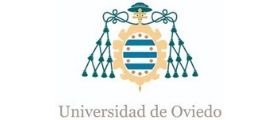Máster Universitario Erasmus Mundus en Enfermería de Urgencias y Cuidados Críticos

Información del curso
Descripción
Emergency and intensive care nurses must be prepared to deal with life-threatening problems and complex situations in extreme environments, reasons why they should be endowed with specific knowledge, skills and attributes to provide care to critically ill or unstable patients and their families. Emergency nurses must be able to prioritise patient care and to provide accurate assessment and effective ongoing management for a diversity of patient populations in situations ranging from life-saving interventions to managing critical situations.
The Erasmus Mundus Joint Master Degree in Emergency and Critical Care Nursing is the first international joint degree in advanced nursing available in Europe. It offers a highly specialized education in nursing, with an advanced perspective. The programme combines theoretical teaching, research methodology and activities, communication & management of critical scenarios and advanced evidence-based practice, using state of the art clinical technologies.
The Master's main objective is to provide a structured and methodologically sound training programme that will cover the shortage of specially trained staff that burdens our health systems' intensive and acute care services. EMJMD NURSING course structure balances theoretical education on evidence based nursing, comprehensive clinical practice and a solid scientific instruction through a 90 ECTS (one and a half year) Postgraduate course leading to an international joint degree and diploma supplement recognized by all four institutions.
Semester 1 will equalize the level of students and offer a strong theoretical and methodological base to build candidate competence. Students will also be able to choose on a first, broad specialization on Adult & Geriatric or Paediatric & Neonatal Clinical Nursing. Semester 2 courses focus on core Clinical Practice and choice of elective study track. Core modules' target is to ensure a sound professional quality of the candidates, while the elective modules allow students to configure the Master towards one of four optional study tracks: Crisis Resource Management in Nursing, Adult, Geriatric or Paediatric & Neonatal Emergency and Critical Care Nursing. Semester 3 consists of a Master Thesis project that includes additional specialization through a tutored practicum. The guided research culminates in a report that will be presented and evaluated by the consortium before awarding the joint degree.
Temario
- Core Modules: 24 ECTS
- Number of elective ECTS to be chosen: 6 ECTS
- Total elective ECTS offered: 12 ECTS
Universidad de Oviedo
- Core Modules: 12 ECTS
- Number of elective ECTS to be chosen: 18 ECTS)
- Core Modules: 10 ECTS
- Number of elective ECTS to be chosen: 20 ECTS
- Total elective ECTS offered: 76 ECTS
- Core Modules: 18 ECTS
- Number of elective ECTS to be chosen: 12 ECTS
- Total elective ECTS offered: 84 ECTS
Destinatarios
Para acceder a este Máster es necesario cumplir los siguientes requisitos:
- Estar en posesión de un título universitario oficial expedido por una Universidad o institución de enseñanza superior que faculte en el país expedidor para trabajar como enfermero y a acceder a enseñanzas oficiales de máster.
- Tener un alto nivel de inglés certificado. Los candidatos deberán justificar un nivel B2 del Marco Común Europeo de Referencia para las Lenguas. Se podrá certificar mediante certificado IELTS (al menos 6,0 y un mínimo de 5,0 puntos en cada sección), TOEFL (soporte papel con al menos 550 puntos y 4,0 puntos en la sección de writing) o TOEFL (IBT con al menos 79 puntos y 17 puntos en cada sección). Los estudiantes de los países angloparlantes acordados estarán exentos de los requisitos del idioma inglés
Asimismo, es aconsejable tener conocimientos de portugués y español.
Perspectivas laborales
Lugar donde se imparte el curso


